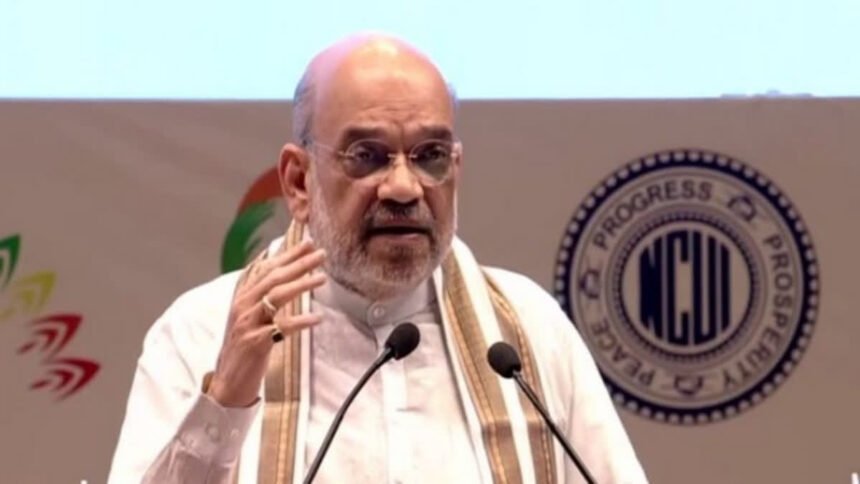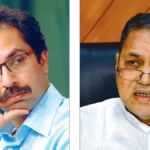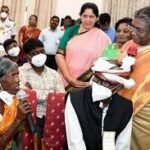Union Home Minister Amit Shah recently addressed a gathering in Uttar Pradesh, where he emphasized the elimination of the “divisive forces” of the Samajwadi Party (SP) and the Bahujan Samaj Party (BSP) from the state. He attributed this achievement to the alliance between the Bharatiya Janata Party (BJP) and the Apna Dal (Sonelal), and urged for the consolidation of backward caste voters in Uttar Pradesh in preparation for the upcoming 2024 Lok Sabha elections.
Shah’s comments came during a commemorative event celebrating the birth anniversary of Sonelal Patel, a prominent leader from the Kurmi community and the father of Union minister Anupriya Patel. Highlighting the successful collaboration between the BJP and Apna Dal (Sonelal), Shah emphasized that the alliance has secured victory in four elections in Uttar Pradesh since 2014.
The Union Home Minister directed his criticism towards the Congress, BSP, and SP, suggesting that their ideologies and actions have been divisive for the state. By contrast, Shah portrayed the BJP and Apna Dal (Sonelal) alliance as a unifying force that has effectively countered the divisive politics of their opponents.
The BJP has been striving to consolidate its support base among various social groups, including backward castes, in Uttar Pradesh. Shah’s call for the consolidation of backward caste voters indicates the party’s strategy to secure a broader voter base by reaching out to historically marginalized communities. By highlighting the alliance’s success and its commitment to the welfare of backward castes, Shah aimed to strengthen the support for the BJP and its allies in the upcoming Lok Sabha elections.
The alliance between the BJP and Apna Dal (Sonelal) has been instrumental in securing political victories in Uttar Pradesh. The BJP has been successful in forming the government in the state in recent years, and the inclusion of Apna Dal (Sonelal) in the alliance has further bolstered their electoral prospects. The alliance’s focus on the concerns and aspirations of backward castes has resonated with a significant section of the electorate, enabling them to emerge as a formidable political force in the state.
Shah’s criticism of the Congress, BSP, and SP is indicative of the BJP’s attempts to position itself as the sole viable alternative to these parties in Uttar Pradesh. By presenting the BJP as the party that has effectively marginalized the divisive forces of the SP and BSP, Shah aimed to undermine the credibility of these opposition parties and their ability to govern the state. This strategy aligns with the BJP’s broader goal of establishing its dominance in Uttar Pradesh and expanding its political influence at the national level.
As the 2024 Lok Sabha elections draw closer, political parties across the country are gearing up for intense campaigning and mobilization efforts. Uttar Pradesh, with its significant number of parliamentary seats, remains a crucial battleground for political parties. The BJP’s focus on consolidating support among backward caste voters reflects its strategic approach to secure a decisive victory in the state. Meanwhile, opposition parties will also be vying to regain their foothold and challenge the BJP’s dominance.
Union Home Minister Amit Shah’s recent address in Uttar Pradesh highlighted the successful elimination of what he referred to as the “divisive forces” of the SP and BSP through the alliance between the BJP and Apna Dal (Sonelal). Shah emphasized the need to consolidate support among backward caste voters as part of the BJP’s strategy for the upcoming 2024 Lok Sabha elections. By presenting the BJP as a unifying force and criticizing the opposition parties, Shah aimed to strengthen the BJP’s position in Uttar Pradesh




